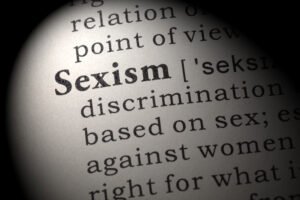 We’re off and running on another election cycle. The Republican presidential primary officially kicks things off on January 15 with the Iowa caucuses, followed by New Hampshire on January 23. With former South Carolina Gov. Nikki Haley running for the top spot and Vice President Kamala Harris running for re-election with President Biden, women political leaders are sure to remain part of the national conversation. And they are not alone. Across the country, women are jumping into races for everything from the school board to Congress.
We’re off and running on another election cycle. The Republican presidential primary officially kicks things off on January 15 with the Iowa caucuses, followed by New Hampshire on January 23. With former South Carolina Gov. Nikki Haley running for the top spot and Vice President Kamala Harris running for re-election with President Biden, women political leaders are sure to remain part of the national conversation. And they are not alone. Across the country, women are jumping into races for everything from the school board to Congress.
Why does it matter whether women run? Because women’s rights are weak where women are politically underrepresented. Ms. recently reported, “The U.S. lags behind 68 other countries in women’s political representation in national legislatures, with American women holding only 29 percent of seats in Congress. At the state level, women hold only 32.6 percent of state legislative seats. In the courts, women make up only one-third of federal judges and state court judges.” Since women make up 50.4% of the population, these numbers show the imbalance of representation in government at all levels.
Ms. goes further to report that, “where women have greater political representation, governments are more likely to support reproductive rights; adopt policies to reduce gender-based violence; support pregnant women, mothers, infants and children; promote equal access to health, infrastructure and education; and address climate change.” The author also touched on how “countries with more men in power are more likely to engage in warfare and commit human rights abuses.”
Women Lead Differently
It’s a fact, women lead differently. Ms. writes that, “more women in office overall means better protection of women’s rights and the well-being of all people.” Take The Lead co-founder and president Gloria Feldt also knows that women lead differently and says that while researching her book No Excuses: Nine Ways Women Can Change How We Think about Power, she realized that women have been socialized differently around power than men. “The history books, all written by men express power in terms of wars and fighting. It’s about scarcity that there aren’t enough resources, so I have to fight you for mine,” she said.
However, Gloria says there is no limit to power. She compares it to a hammer. You can build something with it or smash things apart. That’s why she has worked to educate as many women as she can about the concept of having the “power to” instead of “power over.” With “the power to, you can make life better for yourself, your family, your community, your country, the world.”
 Women Run a Different Race
Women Run a Different Race
The campaign trail isn’t an easy place for female candidates. She Should Run reports that a variety of societal and individual barriers can keep many women from even considering a run for office. “Systemic racism and structural inequities faced by women of different backgrounds, socioeconomic status, sexual orientations, and religions mean there is seldom a one-size-fits-all answer.”
TIME summed it up well, “In American politics, a woman’s gender acts as both an invisible adherent and a tight constraint: it’s harder to shake off mistakes, harder to pivot, harder to throw punches and harder to avoid them. Sexism is transparent, easy to look through if you don’t want to see it, which makes it possible to pretend it isn’t there at all.”
If you doubt sexism is alive and well on the campaign trail, ask Nikki Haley. The sexist attacks have only escalated with polls as she gains ground on her party’s male opponents. The Hill reports that while Trump sought to paint Hillary Clinton as highly unlikable in 2016, it’s not yet clear if he will take that same approach with Haley. However, her other opponents and their allies have firmly embraced sexism as a tool against her candidacy.
For women, sexism is just another hurdle on the trail – unavoidable and often unpleasant. Despite making the decision to run, putting the issues on the front burner, and often putting their lives on the back burner, women face the added burden of gender bias and issues surrounding likeability and voter perception on the campaign trail that their male counterparts do not. In fact, all women in the public eye draw criticism and commentary, not only for their politics and policies but also for their appearance, their parenting, their partners, their careers…the list goes on.
As Shay Franco-Clausen wrote in 2021, “Know that we are going to face sexism wherever we are—in a study published in 2020, it was found that 90 percent of people globally hold some sort of bias against women. The same study found that 39 percent of people in the U.S. believe men to be better leaders than women.”
Lucina Di Meco, co-founder of #ShePersisted, went further when she told Dr. Nancy that women leaders are so new in many countries (even ours) that “a woman leader is almost a contradiction in terms.” Her groundbreaking study, #ShePersisted. Women, Politics & Power in the New Media World, to pursue and eventually stop “gendered disinformation” on social media, consisting of interviews with 85 women leaders in 30 countries. When she initially did the study gender disinformation wasn’t even a recognized term. She said that she felt like she had made progress when in 2021, she heard Maria Ressa – the journalist who won the Nobel Peace Prize – call gender disinformation one of the greatest threats to democracy in her acceptance speech.
After suspending her presidential campaign in the 2016 election, Senator Elizabeth Warren – who is no stranger to the campaign trail – was asked how gender affected the race. “You know that is the trap question for every woman. If you say, ‘Yeah, there was sexism in this race,’ everyone says ‘whiner’. “And if you say, ‘No, there was no sexism,’ about a bazillion women think, ‘What planet do you live on?’”
Bottom line, sexism is alive and well in politics, and the women running (and serving) know it and face it every day. As another election season begins, we have to call out the comments that seek to undermine women. We need instead to encourage them, counteract the public ridicule they often face, and offer them our support for their courage and willingness to work hard to solve the issues that can make the world a better place. Together, we can use our voices to counteract sexist rhetoric and our voting power to support women leaders and help them defend and promote the issues that are important to us all.


 Women Run a Different Race
Women Run a Different Race